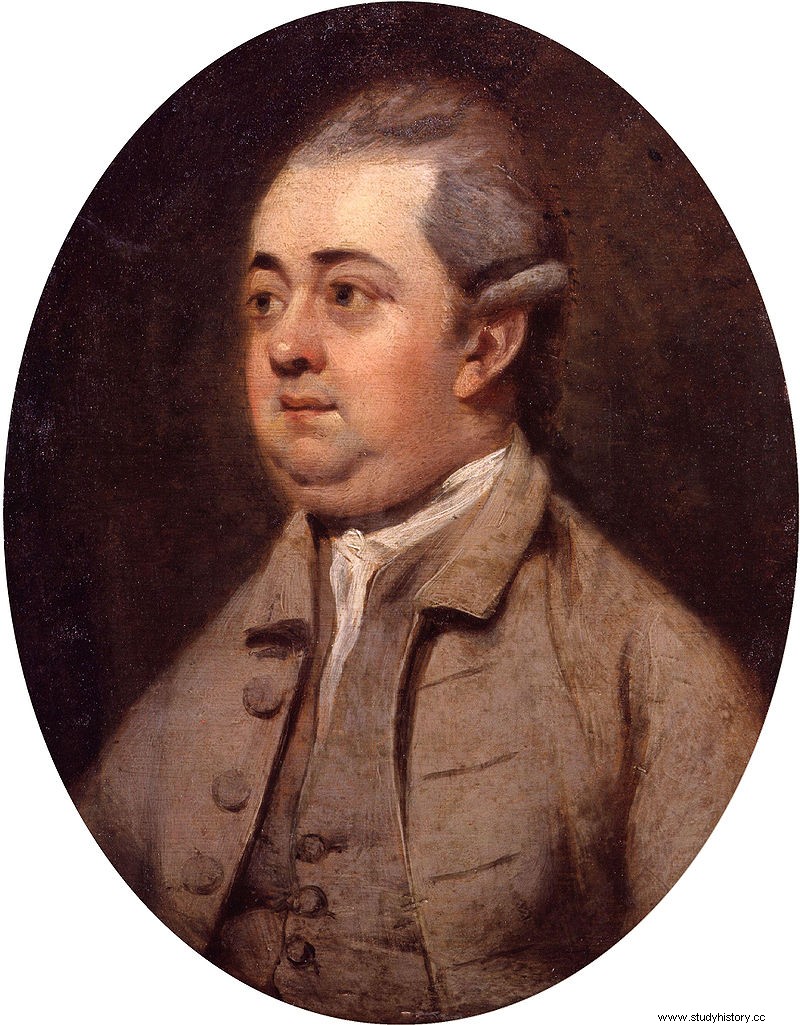Two scholars of Roman history in posterity are Theodor Mommsen of Germany and Edward Gibbon of England.
This time is the story of Edward Gibbon who wrote "History of the Decline of the Roman Empire".

History of the decline of the Roman Empire
Edward Gibbon was born in 1737 and grew up in a relatively wealthy home in Hampshire.
Five brothers and one sister were born besides him, but Gibbon was the only one who grew up safely. His grandmother lost the property in the 1720 South Sea Bubble, but it was successfully revived afterwards, and Gibbon's father was able to gain the legacy.
Gibbon hasn't been very strong since he was young, and his mother died at the age of 10.
Gibbon then entered Oxford University at the age of 14 after attending Westminster Academy in London, where he studied theology and converted to Catholicism.
Speaking of Britain at the time, Catholicism was a minority, and Gibbon's father, who was afraid that his career path would be closed, dropped out of Oxford and took him to Lausanne, Switzerland, where Gibbon converted from Catholic to Protestant again. Will be forced to.
Gibbon spent his time studying John Locke, Grotius, Pascal, etc. in Lausanne and loved Latin literature.
He lived with his father after returning to England, which continued until 1770, when his father died.
Gibbon seemed to be enthusiastic about writing at this time, and he seemed to have written about Swiss history, which was neither published nor completed.
When he traveled to Italy in 1764, he began to immerse himself in the study of Roman history by seeing the ruins of Rome, and from 1776 he began writing his masterpiece, The History of the Decline of the Roman Empire. Become.
It took 12 years to complete, and it was a perfect picture from the heyday of Emperor Trajan to the fall of Constantinople in 1453.
Gibbon especially idealized the era of the Five Good Emperors, describing the era from Nerva to Marx Aurelius as "the happiest time mankind spent", and Gibbon's view of history has long existed as the basis of world history. It can be said that.
In recent years, the theory that disagrees with this view of Gibbon's history has become somewhat stronger, and there is also a strong theory that the decline of Rome had already begun during the time of the Five Good Emperors.
In 1788 Gibbon was elected a Fellow of the Royal Society, and he died in 1793.
He had a lover named Susanne Kurshaw, but her father opposed her marriage and spent her entire life unmarried.
